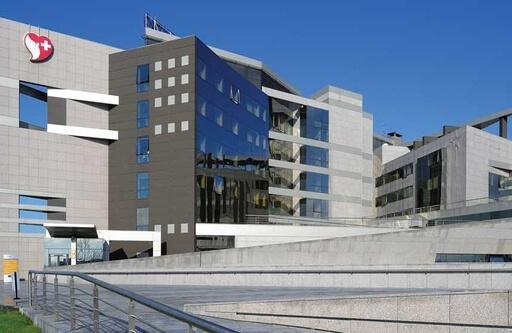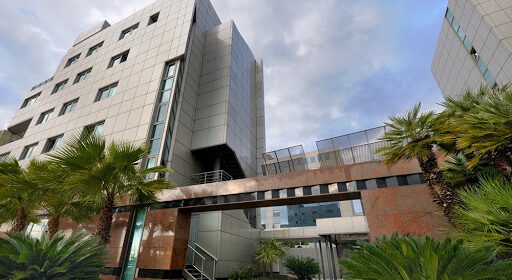Robotic Prostatectomy
“Robotic radical prostatectomy is a minimally invasive surgical method, in which all surgical operations are performed with the aid of a robot, which is controlled by the surgeon through a special console. Special handles on the console allow the transmission of the surgeon’s moves to the robot’s arms with much greater flexibility and stability than that of the human wrist. The tiny tools that are adjusted to the surgical arms, and the high-definition magnified and three-dimensional imaging of the organs of the human body allow difficult surgical manipulations with expertise and precision. During surgery, 5 small holes are created (less than 1 cm) at the lower abdomen, from which miniature instruments are inserted. Prostate removal is performed bloodlessly and with absolute optical precision, while maintaining the integrity of neurovascular bundles and creating a water-tight vesicoureteral anastomosis that will ensure good erectile function and continence postoperatively.
Benefits of Robotic Prostatectomy:
• Less blood loss – lower chance of transfusion,
• Direct urinary continence,
• Better erectile function,
• Faster recovery and quicker mobilisation of patients,
• Faster return to daily- professional activities,
• Shorter hospitalisation and therefore quicker exit from hospital,
• Better aesthetic result,
• Quick catheter removal,
• Minimisation of postoperative pain,
• Less use of analgesics
• Fewer postoperative complications”
Clinical Pathway
Investigations (Preoperative check-up)
- CBC
- Blood group
- Rhesus
- 2 units of blood crossmatch
- ESR
- CPR
- Glucose
- Urea
- Creatinine
- SGOT
- SGPT
- ALP
- g-GT
- Bilirubin
- PT
- INR
- aPTT
- ECG
- Chest X-Ray
- Cardiological assessment
If not available
- Abdominal CT scan
- Bone scan
Hospitalisation
- 3-4 days
Mobilization
- on the 3rd day
Days of Hospitalisation
- 3-4 days
1st f-up Appointment, Wound Check, Removal of Stiches/Clips
- In 7 days clinical assessment and suture and catheter removal
Rehabilitation (duration and type)
- 3 weeks
2nd f-up Appointment
- In 1,5-6 months clinical assessment
Type of Investigation – Clinical Assessment
- PSA in the patient’s own country
Return to Work
- 3 weeks
To be Avoided
- Weight lifting, exercise for 1 month
Diseases

